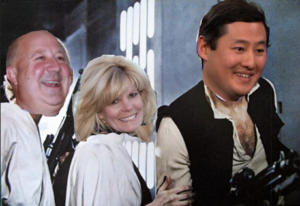We support our Publishers and Content Creators. You can view this story on their website by CLICKING HERE.
The subject line on this morning’s New York Times email is, “Why the Right Thinks Trump Is Running Away With the Race.” The Times’s theory is that low-quality polls sponsored by conservatives are distorting public impressions of the state of the race:
The partisan polls appear focused on lifting Republican enthusiasm before the election and — perhaps more important — cementing the idea that the only way Mr. Trump can lose to Vice President Kamala Harris is if the election is rigged. Polls promising a Republican victory, the theory runs, could be held up as evidence of cheating if that victory does not come to pass.
Of course, in the Times’s telling, only “right wing” polls are suspect or politically motivated. There is no reference to the fact that “mainstream” polls, like the Times’s, have a poor track record at predicting presidential election outcomes.
And according to the Times, only Republicans would dream of questioning an election outcome:
That opinion is shared by a growing faction on both sides of the aisle, who are dismayed to see polls weaponized in a way that could undermine faith in the entire system.
“That’s my main concern,” said Adam Carlson, a data analyst and former Democratic pollster who has been tracking the partisan polls. “People will believe what they want to believe on both sides, but only on one side does that have the chance to lead to pervasive election denial.”
Thus do Democrats memory-hole their election denialism of 2000, 2004 and 2016.
But, partisan spin aside, what do we know about the current state of the race? The most recent polls show a modest shift in Kamala Harris’s direction, and the betting markets have shifted slightly toward Harris as well. (The Times amusingly refers to the betting markets as “opaque, largely unregulated and not a scientific way to gauge public polls.” They are not, of course, a “way to gauge public polls” at all, and most of us consider being unregulated–anathema to the Times!–a virtue.)
The reality is that, unless you entirely disregard the polls, this is the closest presidential election ever. Every swing state is not only within the margin of error, but poised on a knife’s edge. Other than sheer guess or political instinct, there is no way to predict who is going to win. My hope is that the polls, broadly speaking, turn out to be wrong, and that Trump scores a clear victory. But it is more likely that it will take days to sort out the winner, and the result will be controversial–contra the Times, no matter who is declared the winner.

 Conservative
Conservative  Search
Search Trending
Trending Current News
Current News 



